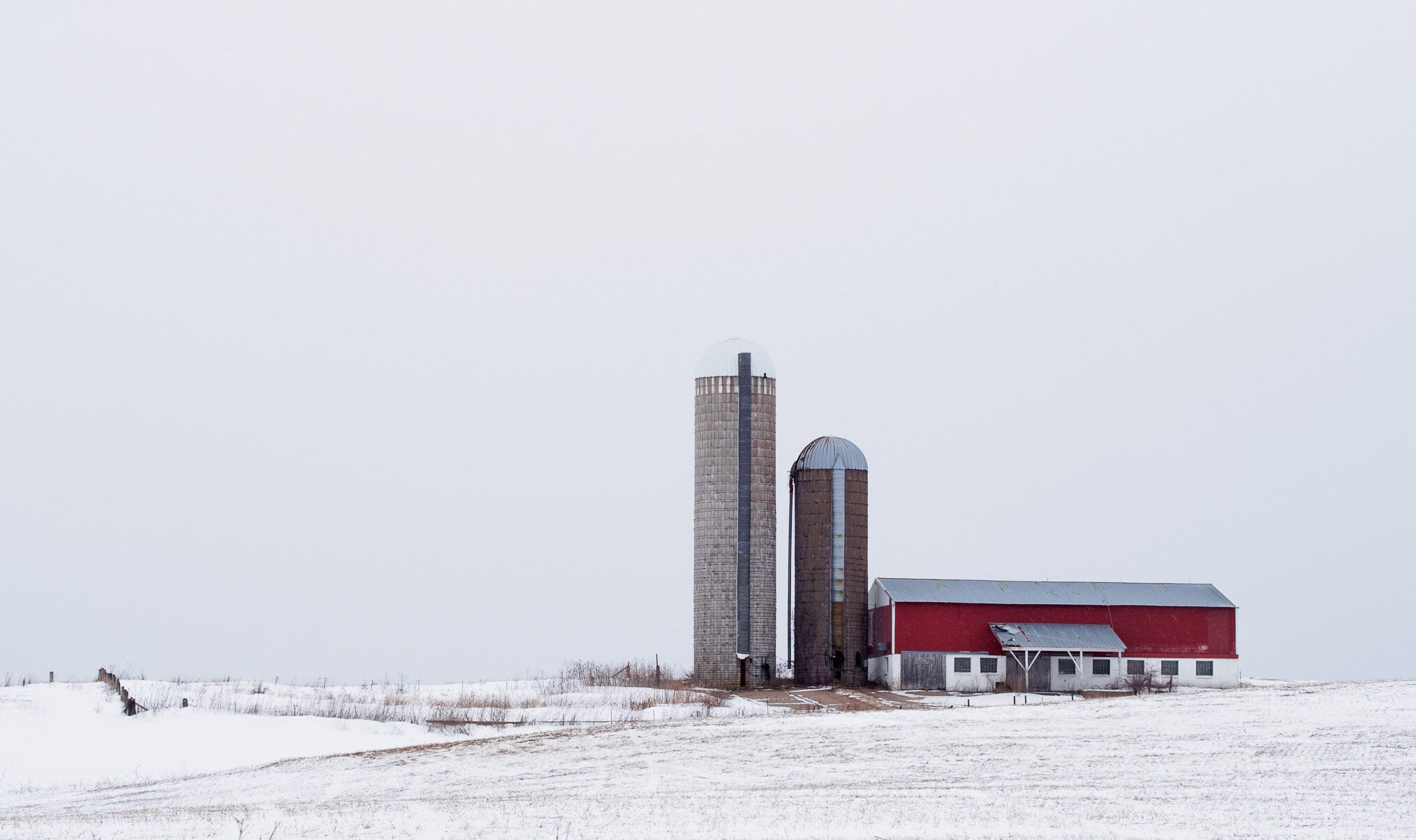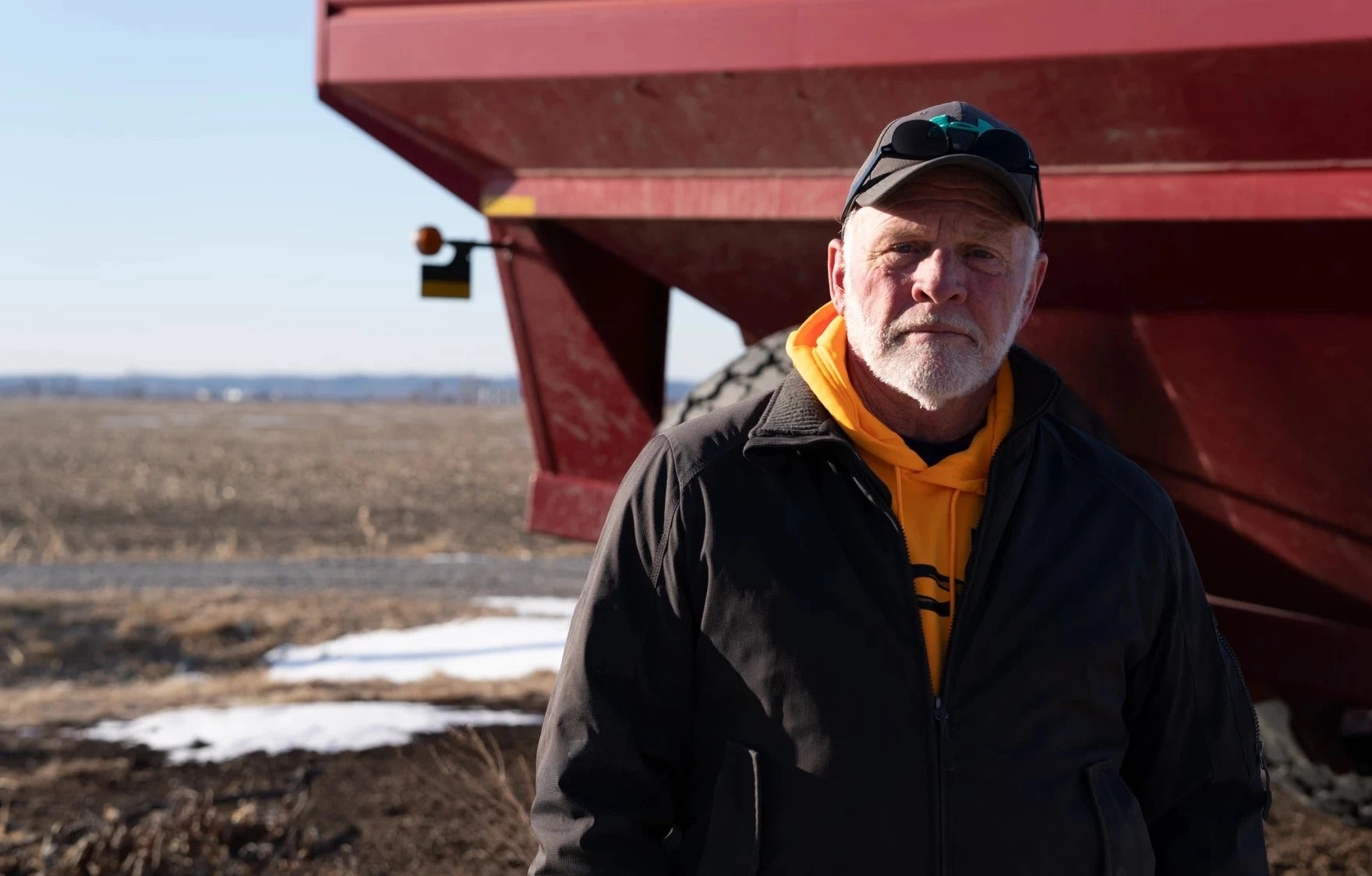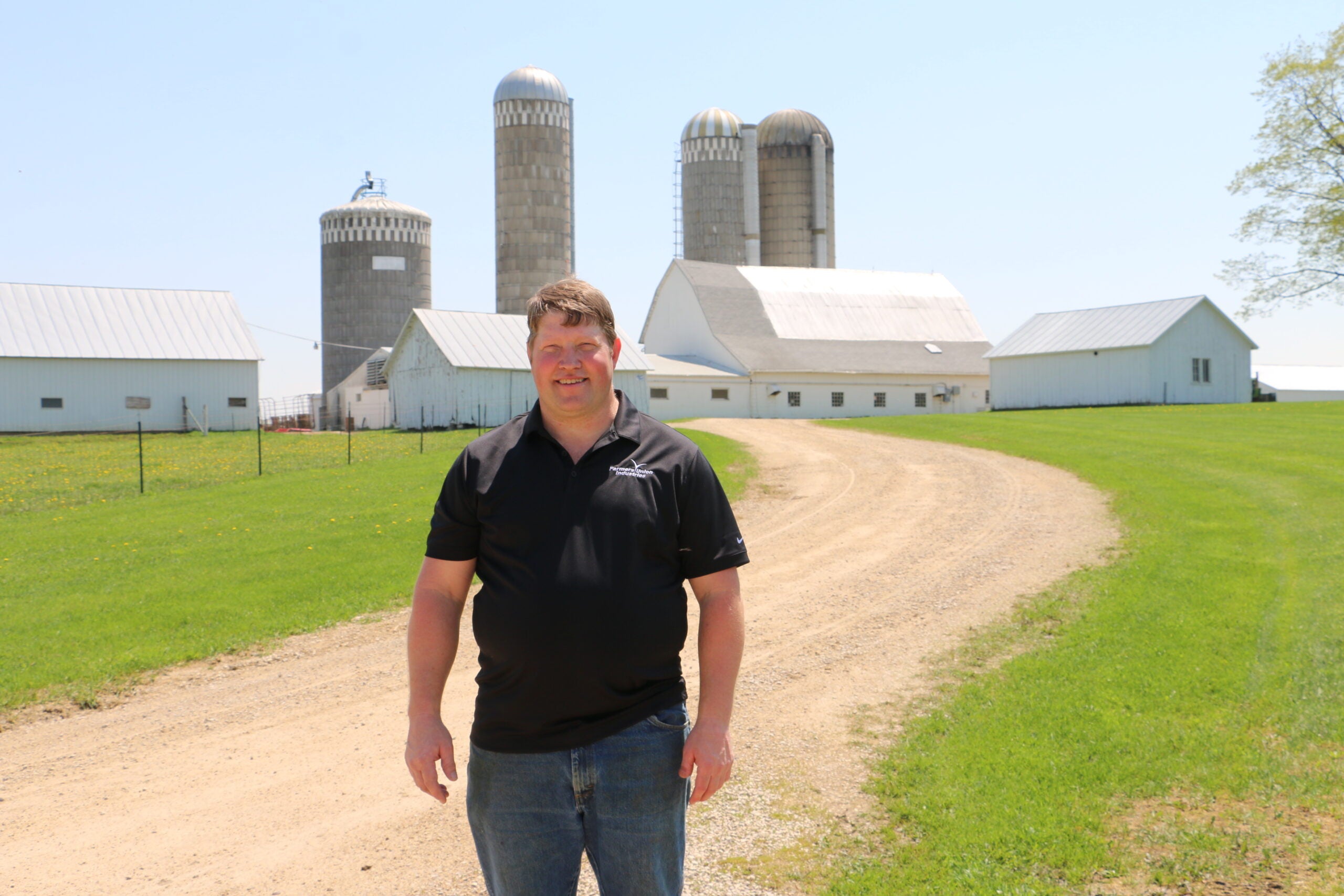Farmers from western Wisconsin shared their frustrations and fears over the Trump administration’s shakeup of federal programs at a town hall event Friday.
The Wisconsin Farmers Union invited federal and state lawmakers from both parties to hear from its members at its office in Chippewa Falls. Democratic U.S. Rep. Mark Pocan and several Democratic state lawmakers attended, but none of the invited Republican lawmakers appeared at the event hosted by the liberal farm group.
Since taking office, President Donald Trump froze federal payments of grants and other programs, ended funding for foreign aid and ordered staff cuts at agencies like the U.S. Department of Agriculture. The Trump administration’s threat of tariffs against top trading partners like Canada and promises of a crackdown on immigration have also caused worry within the nation’s agriculture industry.
News with a little more humanity
WPR’s “Wisconsin Today” newsletter keeps you connected to the state you love without feeling overwhelmed. No paywall. No agenda. No corporate filter.
Two producers at the town hall said payments from grants they were awarded through the USDA’s Natural Resources Conservation Service have been frozen.
Chris Burkhouse traveled from Polk County on Friday to tell lawmakers about losing her grant-funded job. She was employed by a nonprofit working to help beginning produce farmers scale up their operations and improve profitability.
Burkhouse said after the president issued an executive order halting federal payments for grants and loans, the nonprofit notified her that she should stop working until they could understand the order.
“A couple days later, they said I should probably start looking for another job because they couldn’t guarantee that they were getting funds to continue that work,” said Burkhouse, adding that she knows several other people in similar jobs who have also been laid off.
Burkhouse said she’s been told by U.S. Rep. Tom Tiffany’s office that the funding freeze is only temporary. But she feels the response doesn’t acknowledge the real impact that the Trump administration’s policies have had on people like her.
A spokesperson for the Wisconsin Farmers Union said Tiffany and U.S. Rep. Derrick Van Orden were invited to the town hall but were unable to attend due to schedule conflicts.
Burkhouse, who spent years as a vegetable producer before selling her farm, said she’s still looking for a new job. For now, she’s signed on to work as summer help for some of the farmers she previously trained.
“I’m going to be working for them, which is great,” she said. “But I do need something else, too, because I’m 58.”

Threat of tariffs, food assistance cuts leave farmers uncertain about upcoming season
Les Danielson is a grain and dairy farmer from Cadott who sits on the board of his local supply cooperative. Speaking during the town hall, he said his co-op’s most recent meeting was focused on the availability of potash fertilizer in this season. The critical product mainly comes from Canada and would be directly affected by 25 percent tariffs threatened by the Trump administration.
“As we go into planting season, a lot of the co-ops have their sheds full of potash right now,” Danielson said during the meeting. “But those sheds have to be turned two or three times, meaning we can’t store everything. It would be nice if we could just bring it across the border, have it and not worry about the tariffs.”
He said the tariffs have also created uncertainty around how much the fertilizer will end up costing farmers.
Potential cuts to food and farming programs through the federal budget were another concern brought up by farmers at the Friday event. Republicans in Congress are proposing up to $2 trillion in spending cuts to fund the Trump administration’s legislative priorities.
Taya Schulte, a vegetable grower from Wheeler, said she’s worried potential cuts to the Supplemental Nutrition Assistance Program, or SNAP, will hurt spending on food across the country.
“It’s really scary as a farmer who is passionate about seeing my community fed, but it’s also business,” Schulte said. “Those are food dollars that can be spent at farmers markets or Walmart or your corner store.”
Schulte said she sees the impact of food assistance on the customers that she sells to at local farmers markets. Many markets offer SNAP recipients incentives to shop with their vendors.
“A lot of times what really makes [farmers markets] worth it is the [SNAP] market bucks that gives our customers double the buying power,” Schulte said.
Wisconsin Public Radio, © Copyright 2025, Board of Regents of the University of Wisconsin System and Wisconsin Educational Communications Board.







